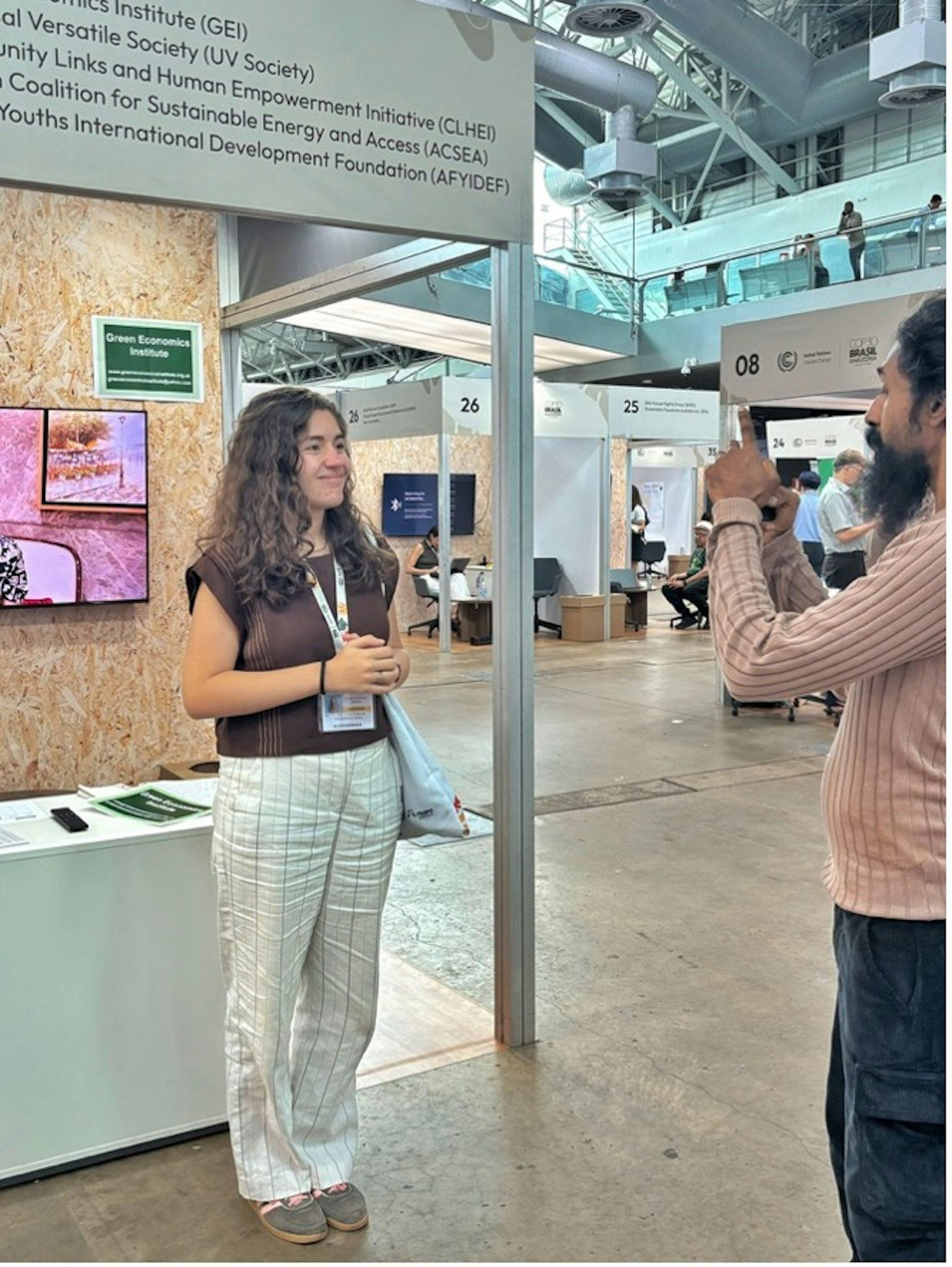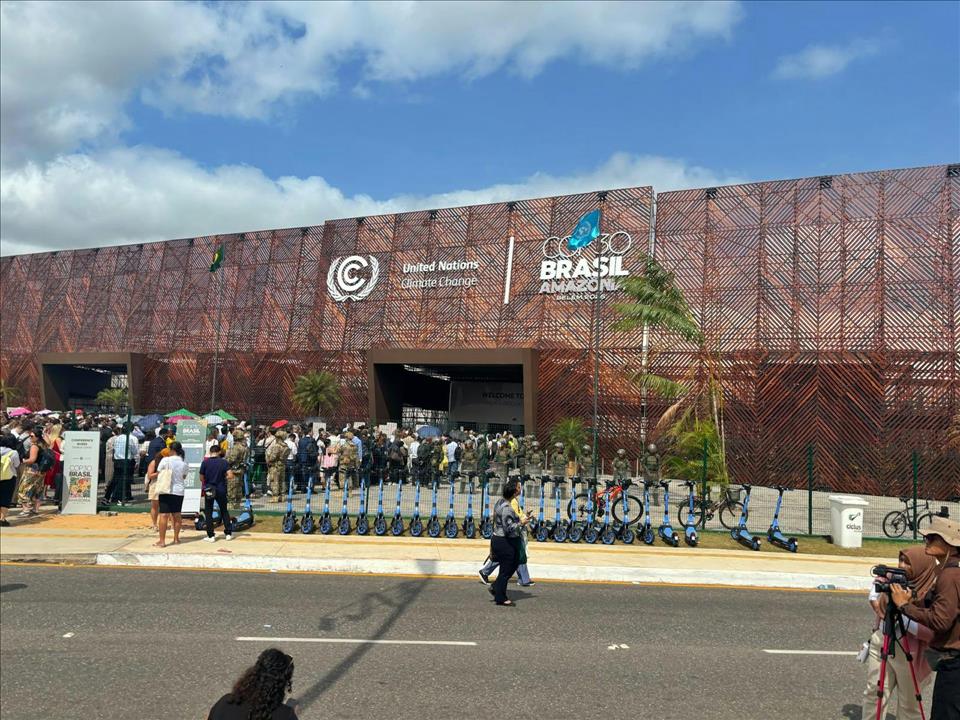
The Demands Of Young People Went Unfulfilled By The UN Climate Summit Mostly
Following overnight negotiations on November 21-22, the Brazilian presidency unveiled an outcome decision referred to as the “global mutirão” (collective efforts ). But experts agree that the outlined climate action is insufficient.
I attended this years' Cop as an advisor to the international Youth Negotiators Academy - a programme offering training to negotiators under the age of 35. My experience at Belém informs my PhD research into how social movements are influencing climate conferences. Here are some of the expectations of the young people I met at Cop30.

Ana Bertazzo Lemos.
Brazilian student Ana Bertazzo Lemos, 23, attended Cop30 calling for obligations to cut fossil fuel emissions and the integration of ecological action into everyday life. But the final Cop30 text had no mention of fossil fuels.
Without a roadmap to transition away from fossil fuels, the Brazilian presidency said it will move forward outside the UN process. Accordingly, the first International Conference for the Phase-out of Fossil Fuels will be held in Colombia in April 2026.
Read more: Youth activists are now real agents of change at global climate summits
Equality for Indigenous peopleMatthaeus Menezes Assef, left, with Guarany Osório.
Matthaeus Menezes Assef, 29, from Guarujá, Brazil, is the student representative of the UN Framework Convention on Climate Change (UNFCCC) taskforce at the University of Leeds. I talked to Menezes and Guarany Osório, a Brazilian professor of sustainability, about their common goals.
Menezes is concerned for Brazil's domestic political vision. He says Brazil needs to deal with deforestation and oil extraction in the Amazon, while evolving as a climate leader. He was happy that Cop30 brought 3,000 Indigenous people to Belém, with many receiving blue badges for direct access to negotiations. However, a roadmap to deforestation did not materialise at Cop30.
Protection for AmazoniaThe author with Jhulielson Conceição, left, and Nathália Vasques.
Jhulielson Conceição, 22, and Nathália Vasques, 24, were volunteers at Cop30, providing essential information and guidance to delegates.“Without us they'll be lost,” Vasques told me. She sees Cop30's location as crucial because Belém is on the frontline of climate change.
Vasques hoped that first-hand experience for delegates would translate into stronger commitments and greater protection for Amazonia, but this hasn't happened yet. Both Conceição and Vasques wanted to see more recognition for youth voices at future Cops - but this shouldn't just be tokenistic. Young people require decision-making power.
Stronger climate lawEmily Zinkula speaking at a panel co-organised by Stop Ecocide International.
Emily Zinkula, 25, a law student from Stanford University, focused on whether legal mechanisms can create accountability for climate action. She tracks whether negotiations incorporate the recent advisory opinions on climate obligations, particularly by the International Court of Justice. An advisory opinion is a legal interpretation that's not legally binding, provided by a high-level court or tribunal in response to a specific question of law.
Zinkula spoke at a side event alongside Jojo Mehta, co-founder of the campaign organisation Stop Ecocide International. Zinkula argued that the advisory opinion can help civil societies gain momentum around recognising ecocide (large-scale destruction of nature by human actions) as an international crime.
Having researched climate laws, I share her vision for accountability and justice – but the negotiations don't yet reflect that.
Read more: How young people have taken climate justice to the world's international courts
A healthy just transitionNova Tebbe taking notes of negotiations at Cop30.
Nova Tebbe, 28, a postdoctoral researcher from the Global Climate and Health Alliance and UNFCCC constituency member, called for the introduction of “indicators for adaptation” – the rules, metrics and standards needed for adaptation projects.
Tebbe demanded adaptation finance from developed to developing countries as per the Paris climate agreement. She emphasised that human health should be central to climate negotiations, and hoped for a just transition mechanism that moves from policy to implementation.
Tebbe also wanted the second global stocktake (a five-yearly assessment of the world's progress toward the goals of the Paris agreement, due in 2028 ) to be more inclusive, with civil society input. She told me how the Belém conference's positive atmosphere and push for quick decisions seemed unusual compared with other climate summits she had attended.
Susan Ann Samuel at the Nordic pavillion speaking about the role of youth in regional governance structures in Thiruvananthapuram, India.
However, the final outcomes of Cop30 did not offer reassurance on most of her hopes. A new just transition mechanism was adopted, but without any map, money or manual.
This mechanism is a strategy to guarantee that the global shift towards a green economy is equitable and safeguards the rights of all people. There were discussions about doubling adaptation finance by 2025 and tripling it by 2035 – but whether the adaptation indicators include priorities for health is yet to be seen.
Young climate activists can't deny that climate negotiations are complex, driven by political agendas and national interests. But my time in Belém has reinforced something essential: young people can play an instrumental role in and around the negotiations. Unfortunately, those demands don't always translate into actual outcomes.
Don't have time to read about climate change as much as you'd like?
Get a weekly roundup in your inbox instead. Every Wednesday, The Conversation's environment editor writes Imagine, a short email that goes a little deeper into just one climate issue. Join the 47,000+ readers who've subscribed so far.

Legal Disclaimer:
MENAFN provides the
information “as is” without warranty of any kind. We do not accept
any responsibility or liability for the accuracy, content, images,
videos, licenses, completeness, legality, or reliability of the information
contained in this article. If you have any complaints or copyright
issues related to this article, kindly contact the provider above.

















Comments
No comment